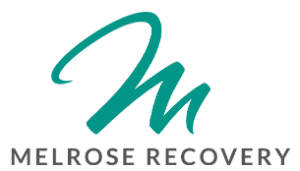Does Alcohol Make You Sleepy
Alcohol is often associated with relaxing evenings, winding down after a long day, or social gatherings. Many people believe that a nightcap can help induce sleepiness. However, the relationship between alcohol consumption and sleep is more complex than it appears. According to the Centers for Disease Control and Prevention (CDC), sleep-related issues affect one-third of Americans, and alcohol plays a significant role in exacerbating these problems.
In this blog, we’ll examine whether alcohol truly makes you sleepy and discuss the reasons behind its impact on sleep quality. By sharing evidence-based insights and practical tips, we at Melrose Recovery Center aim to clarify how alcohol affects your sleep patterns and guide you toward healthier habits.
Exploring the Relationship Between Alcohol and Sleep
It’s a common belief that alcohol can induce drowsiness, and there is some truth to this. Alcohol is a central nervous system depressant, meaning it slows down brain activity and can produce feelings of relaxation and drowsiness. This initial sedative effect can help you fall asleep faster by reducing the time it takes to drift off. However, this seemingly beneficial effect is short-lived and comes with significant drawbacks.
As the quality of sleep deteriorates, individuals may feel increasingly fatigued during the day, leading to a reliance on alcohol as a sleep aid. This repeated use can quickly escalate, as the body builds tolerance to alcohol’s sedative effects, requiring higher quantities to achieve the same initial drowsiness. Consequently, this increases the risk of developing or exacerbating an addiction.
Furthermore, poor sleep quality resulting from alcohol consumption can have broader impacts on mental and physical health, contributing to stress, anxiety, and depression, which can further fuel the cycle of addiction. Addressing sleep issues is crucial in treating alcohol addiction, as this cycle creates a significant barrier to recovery.
The Physiological Effects of Alcohol on the Body and Brain
Alcohol impacts the body and brain, especially regarding the sleep-wake cycle and stages of sleep. Upon consumption, alcohol quickly enters the bloodstream and affects the central nervous system. One immediate effect is the enhancement of the inhibitory neurotransmitter gamma-aminobutyric acid (GABA), promoting relaxation and drowsiness. However, alcohol also inhibits the excitatory neurotransmitter glutamate, which helps keep you awake and alert.
Despite its initial sedative effects, alcohol’s influence on the brain’s sleep-regulating mechanisms can lead to fragmented and disrupted sleep patterns. Alcohol affects the production of neurotransmitters and hormones involved in sleep regulation, such as melatonin and adenosine.
How Does Alcohol Impact Neurotransmitters and Hormones?
Melatonin, the “sleep hormone,” is crucial for regulating the sleep-wake cycle by signaling to your body that it’s time to sleep. Alcohol consumption can suppress melatonin production, disrupting regular sleep patterns. Adenosine, another important compound, accumulates in the brain throughout the day, promoting sleepiness as its levels rise. Alcohol can interfere with adenosine’s actions, further complicating the sleep process.
Short-Term and Long-Term Effects on Sleep Quality

While alcohol may help you fall asleep faster, its effects on sleep architecture can lead to poor sleep quality. In the short term, alcohol consumption can reduce the amount of time spent in REM (rapid eye movement) sleep, a crucial stage for cognitive functions like memory consolidation and mood regulation. Instead, alcohol increases deep sleep during the first half of the night, but as it metabolizes, it can cause frequent awakenings and lighter sleep during the second half.
In the long term, regular alcohol consumption can lead to chronic sleep disturbances and contribute to the development of sleep disorders such as insomnia and sleep apnea. Additionally, alcohol’s diuretic effect can lead to increased nighttime awakenings to urinate, further disrupting sleep continuity.
Practical Tips for Improving Sleep Hygiene
Understanding the negative effects of alcohol on sleep can help you make better choices to improve your sleep quality. Here are some practical tips:
- Limit alcohol intake before bedtime. Try to avoid consuming alcohol at least three to four hours before going to bed. This allows your body to metabolize the alcohol before you sleep.
- Establish a consistent sleep schedule. Maintain a consistent sleep schedule by going to bed and waking up at the same time every day, including weekends. This helps regulate your body’s internal clock.
- Create a relaxing bedtime routine. Participate in relaxing activities before bedtime, like reading, meditating, or taking a warm bath, to signal your body that it’s time to wind down.
- Optimize your sleep environment. Keep your bedroom cool, dark, and quiet. Use blackout curtains, earplugs, or white noise machines to reduce disturbances.
- Stay hydrated. While it’s important to stay hydrated, try to limit fluid intake right before bed to reduce nighttime awakenings.
- Limit exposure to blue light. Reduce screen time from TVs, phones, and computers at least an hour before bedtime. Use blue light filters on your devices if you need to use them.
- Be mindful of your diet. Avoid heavy meals, caffeine, and spicy foods before bedtime. These can disrupt your sleep and cause discomfort.
- Manage stress and anxiety. Practice relaxation techniques like deep breathing, progressive muscle relaxation, or yoga. Keeping a journal to write down your thoughts can also help clear your mind.
Incorporating these tips into your daily routine can improve your sleep hygiene and enhance your overall sleep quality. If you continue to have trouble sleeping, consider consulting a healthcare professional. There may be underlying issues such as sleep disorders that need addressing.
Addressing Common Misconceptions

Several misconceptions about alcohol and sleep need to be addressed:
By addressing these misconceptions and understanding the true impact of alcohol on sleep, you can make more informed decisions about your drinking habits and work towards achieving better sleep quality.
Find Out How Melrose Recovery Can Help
Wondering “does alcohol make you sleepy?” Discover the truth about alcohol’s impact on your sleep patterns and overall health. At Melrose Recovery, we understand the complexities of alcohol addiction and its effects on your life. Our comprehensive treatment programs are designed to help you overcome addiction and regain healthy, restful sleep. Take the first step towards better health and a brighter future with Melrose Recovery. Contact us now!
Get In Touch
info@melroserecovery.com
501 North Mariposa Ave, Los Angeles, CA 90004













